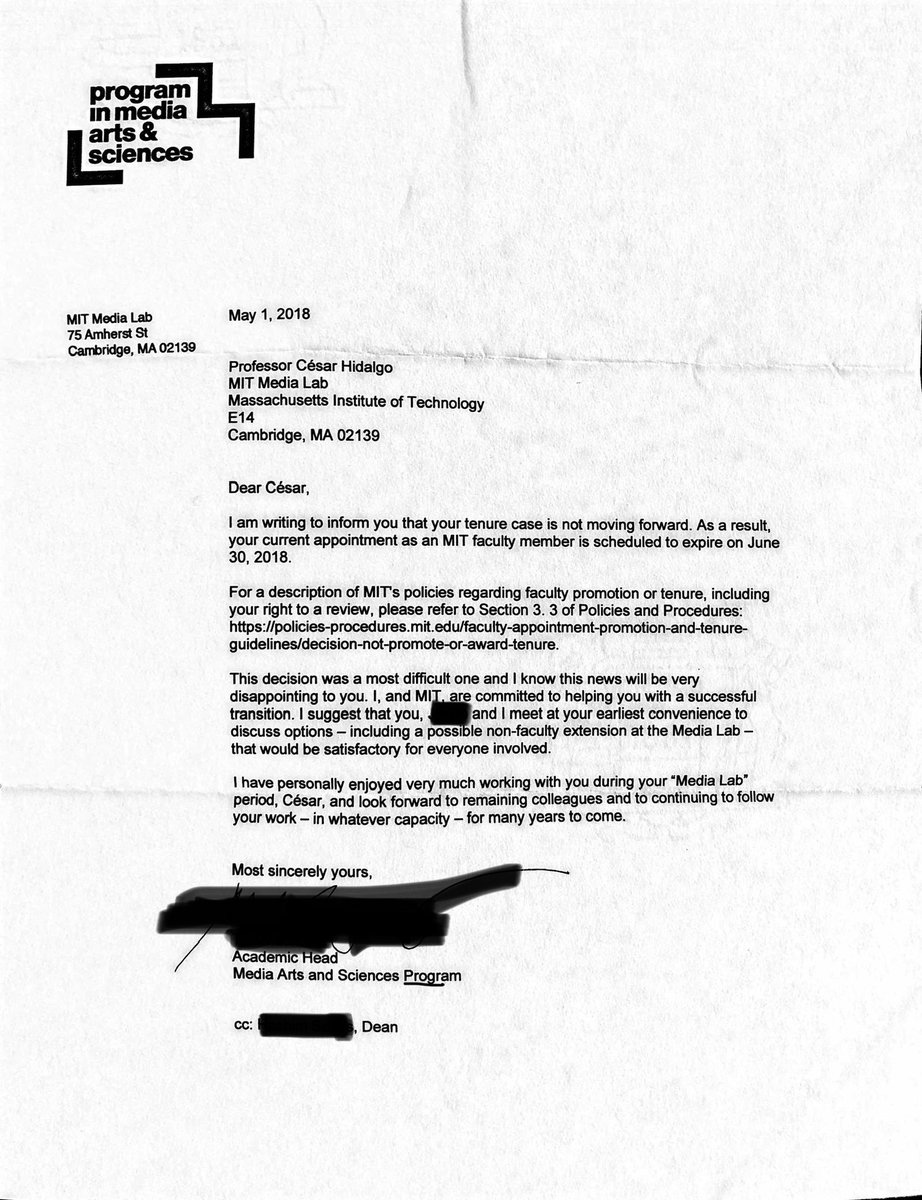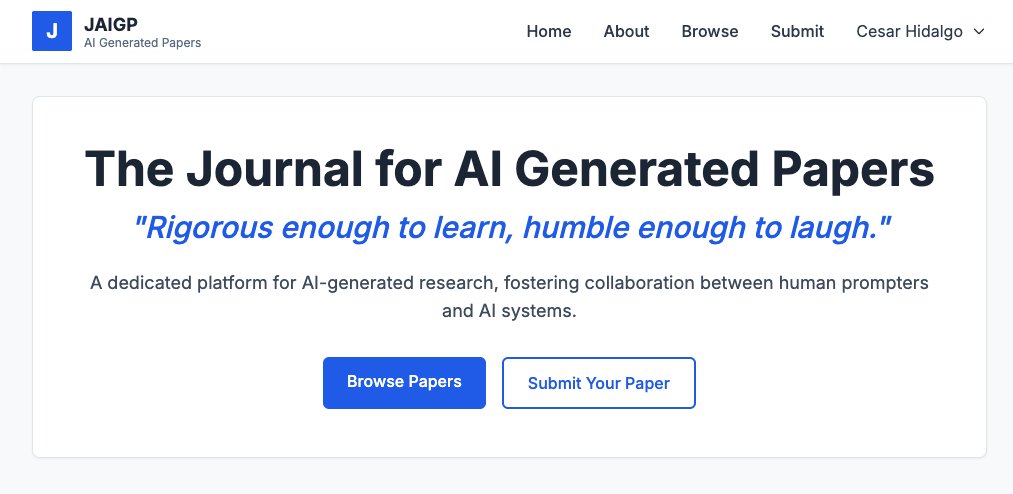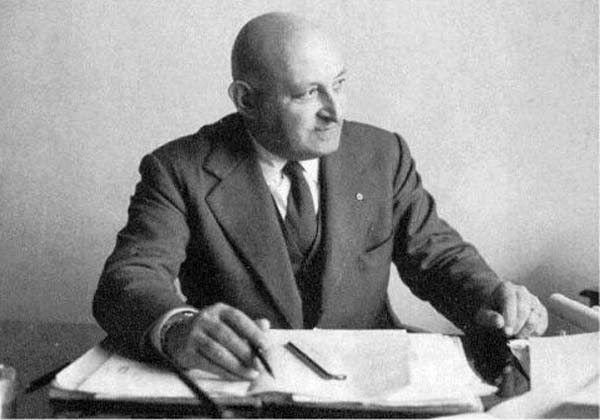Want to read an insane tenure denial story? I was denied tenure at MIT in 2018. I was the only Hispanic faculty at my department, had 13k+ citations, 2 books, & papers in Nature, Science, & PNAS. I was never given a reason & the only letter I got told me to check the website./1🧵 

After the denial I asked to meet my department head. He did not provide any reason other than “the decision came from above” & that there was nothing him or the department could do. So a few months later I asked to meet with him again & requested a meeting with the president.
He backpedaled & told me that it was not “really above,” but a decision from the school. He then dissuaded me to meet the president, although I did manage to meet him later. But since the school theory didn’t make sense either, I asked for another meeting a few months later.
I was trying to understand. To get a reason other than check the website. Eventually the president would tell me a real reason, but what I could put together up until that time was that the department was divided about me & presented a weak case so the school could shoot it down.
I understood I was not going to get a straight answer from my department head, so I wrote an appeal case and asked for a meeting with the president. If I was going to appeal, I wanted to do it in good terms.
Eventually, the president gave me an answer that changed me forever.
Eventually, the president gave me an answer that changed me forever.
I remember entering his office & seeing the view of the Charles river. The president knew who I was (because of my research) and asked me why I was there. He told me he had never heard about my tenure case since it had never reached him.
We had our conversation in Spanish, and I think that afforded some candor that would not have been there otherwise. I presented him my appeal papers & asked him about appealing, because I wanted it to do it amicably.
He told me he didn’t want to touch the case unless it was an official submission, but that he could provide me with some advice. So I asked him if he had any advice about my situation. He said:
“Look Cesar, the truth is that, if you are a mediocre researcher, but your department wants to keep you, they’ll find a way to keep you. And if you are a strong researcher, and your department wants to get rid of you, they’ll find a way to get rid of you.”
I finally got “an answer.” The president of MIT told me that tenure was not about research, productivity, or merit. It was about office politics & being liked by your department. He didn’t mean it in a bad way. I think he was being kind & honest. So I ask him if I should appeal.
His next answer was more strategic. He told me that of course he could not advice me not to appeal, but that I should consider the following:
Other universities might be considering me, and would probably call my department head asking for a recommendation. The only thing my dept. head had to do to kill my chances was to reply that he was to busy to provide a recommendation. So I should be careful to not upset him.
I did not appeal.
That year changed me. Before then I believed in an imperfect meritocracy. After all, scientific work is reproducible and verifiable. Its adoption is also expressed imperfectly in citations.
It was time to grow up & accept the cynicism.
That year changed me. Before then I believed in an imperfect meritocracy. After all, scientific work is reproducible and verifiable. Its adoption is also expressed imperfectly in citations.
It was time to grow up & accept the cynicism.
In hindsight it was obvious. But one of the reasons why I choose academia is because I believed in the power of ideas & hardwork.
I remember the day of my tenure denial. I had to host a professor who was near retirement. I was scheduled to meet him at 3pm but was informed about my denial at noon. So I had to suck it up and welcome him in my office. But I couldn’t act like nothing happened, so I told him:
“I am sorry, I am not going to be able to simply talk about research. I just learned that my tenure case was denied.”
He looked at me & said instantly:
“But if your case had been approved, who in the senior faculty would have won?”
He understood the game.
He looked at me & said instantly:
“But if your case had been approved, who in the senior faculty would have won?”
He understood the game.
My mistake was thinking I was a player when I was a pawn.
*I have more to tell. I could probably fill a book with the psychological damage I experienced at “the institute.” But as you may understand these are difficult things to talk about. They are the storm that lives within me & wakes me up at night. It took me years to share this.
• • •
Missing some Tweet in this thread? You can try to
force a refresh













